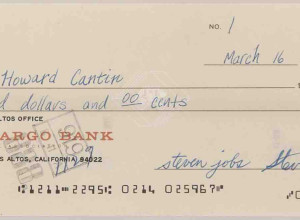Daniel De Simone Named Folger Librarian
Washington, D.C.—Daniel De Simone, curator of the Lessing J. Rosenwald Collection in the Rare Book and Special Collections Division of the Library of Congress, has been named Eric Weinmann Librarian at the Folger. He begins in January 2014.
"Dan brings to the Folger a wealth of experience, from his work at the Library of Congress where he has distinguished himself as the curator of the Rosenwald Collection, to his work in the book trade and his role as an educator," said Folger Director Michael Witmore in making the announcement. "I welcome the opportunity to work with him and know that the Folger will benefit from his knowledge and experience."

Since arriving at the Library of Congress in 2000, De Simone has organized a series of high level symposia, exhibitions, presentations, and publications that have raised the visibility of the Rosenwald Collection and the Rare Book and Special Collections Division, both within the Library of Congress and the international rare book community. He curated the noted exhibition, A Heavenly Craft: The Woodcut in Early Printed Books, which was seen in New York City, Dallas, and Washington and accompanied by a highly acclaimed catalogue.
De Simone has organized symposia and written on such diverse subjects as the Giant Bible of Mainz, Galileo's Sidereus Nuncius, Gaetano Filangiere's influence on Benjamin Franklin, techniques of color printing, William Blake, early calligraphy books, and many other subjects which relate to the Rosenwald Collection. His most recent work, a book he edited with John Hessler entitled Galileo: The Starry Messenger, Venice 1610, was published in September of this year.
Before his appointment as Rosenwald Curator, De Simone owned his own bookselling business which he operated for 22 years in New York City. Focusing his business on selling books to rare book libraries, he developed specialties in the history of printing, antiquarian bibliography, book illustration, and eighteenth-century Italian and French books. From 1986-88, he served as Managing Director of Antiquariaat Meyer Elte, a 100 year-old book company in The Hague, The Netherlands where he learned the European book trade.
He is the recipient of the Library of Congress Special Achievement Award for contributions to the Library in 2008 and 2005. In 2006, he was awarded The Krasnoff Grant which funded research on the history of printing in Ferrara. He is a member of the Grolier Club NY, Association Internationale de Bibliophilie, Paris, and Print Council of America.
"I was thrilled when I received Mike's call offering me the opportunity to become the Eric Weinmann Librarian," said De Simone. "Knowing that I would be working with such a dedicated and professional staff at one of the greatest collections ever assembled is really a dream come true. I appreciate the trust that the institution has placed in me and I will do my best to uphold the Folger traditions that are so much a part of this place."
De Simone succeeds Stephen Enniss, who served as the Folger Eric Weinmann Librarian from 2009 through June 2013, before becoming the Director of the Harry Ransom Center at the University of Texas at Austin.
* * *
Folger Shakespeare Library is a world-renowned center for scholarship, learning, culture, and the arts. It is home to the world's largest Shakespeare collection and a primary repository for rare materials from the early modern period (1500-1750). The Folger is an internationally recognized research library offering advanced scholarly programs in the humanities; an innovator in the preservation of rare materials; a national leader in how Shakespeare is taught in grades K-12; and an award-winning producer of cultural and arts programs—theater, music, poetry, exhibits, lectures, and family programs. By promoting understanding of Shakespeare and his world, the Folger reminds us of the enduring influence of his works, the formative effects of the Renaissance on our own time, and the power of the written and spoken word. A gift to the American people from industrialist Henry Clay Folger, the Folger—located one block east of the US Capitol—opened in 1932.















